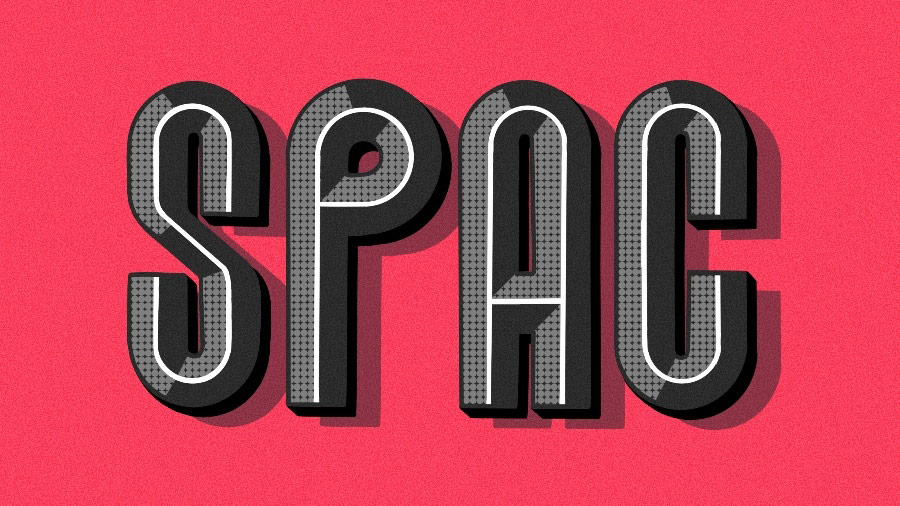Given the notoriously awful performance of so many SPAC mergers, you’d think new deals wouldn’t be happening.
But you would be wrong.
SPACs, or shell companies formed to bring private companies to public markets, are still rolling out merger announcements. New SPACs are also making Nasdaq debuts.
Search less. Close more.
Grow your revenue with all-in-one prospecting solutions powered by the leader in private-company data.
“It’s not the frenzy that it was. … But we are still seeing deal flow,” said Julian Klymochko, a hedge fund pro who runs the Accelerate Arbitrage Fund, which invests in special-purpose acqusition companies. Typical deal size, unsurprisingly, has shrunk since the market peak in 2021.
Although investor preferences have shifted, we are still seeing some deals involving venture-backed technology and biotech companies. A few recent examples include:
- Sustainable Living Innovations, a maker of panelized building systems for apartment construction, announced this week it has entered into an agreement with the SPAC Churchill Capital Corp. V, for a potential merger of undisclosed size. Seattle-based Sustainable Living previously raised over $80 million in venture funding.
- Sakuu, a developer of lithium solid-state batteries, announced last week that it plans to go public through a merger with shell company Plum Acquisition Corp. I at a targeted enterprise value around $705 million. San Jose-based Sakuu previously raised over $16 million in known venture funding.
- Oculis, a Swiss biopharmaceutical developer focused on eye care, completed a SPAC merger last week and is currently trading under the ticker symbol OCS. The company previously raised over $90 million in known venture funding and currently has a market cap over $300 million.
Older SPAC deals still sputtering
These new deals are getting done as carnage continues at many companies that completed SPAC mergers in 2021 and early 2022. This week, for instance, we reported on autonomous trucking software developer Embark, which is winding down operations just 16 months after debuting at a valuation around $5 billion.
A couple weeks before that, Boston-based internet service provider Starry, which went public via SPAC less than a year ago, filed for bankruptcy protection. Around the same time, Quanergy, a provider of LiDAR sensors that completed a SPAC merger in early 2022, completed an asset sale following its bankruptcy filing.
At this point, there’s a pretty long list of SPAC mergers from 2021 and 2022 that have concluded in bankruptcies. Others include mobile retail startup Enjoy Technology, microchip-maker Rockley Photonics, and 3D printing company Fast Radius.
Companies that are still listed, meanwhile, have also been poor performers, including some of the biggest names that took the SPAC express to market. WeWork, for instance, is currently trading for a little over a buck a share, and Grab is down over 80% from its 2021 peak. Though there were signs of recovery earlier this year, that has not translated broadly into lasting gains.
Blank-check companies are winding down too
We’re also seeing more of the blank-check companies launched during the SPAC boom times quietly going away.
Largely, this is because they’re hitting their expiration date. When a SPAC makes its market debut, it usually has two years to identify an acquisition target and complete a combination.
Since the peak period for blank-check company launches was Q1 of 2021, many SPACs are hitting that two-year deadline this quarter. Those that haven’t completed a transaction are liquidating and returning invested cash to shareholders. This includes tech vehicles, such as Build Acquisition Corp. and Independence Holdings Corp. The two software-focused SPACs announced plans to liquidate in the past couple weeks.
SPACs that have identified a merger target are also seeing high redemptions. Shareholders, seeing the current share prices of so many completed deals, are choosing to swap their stakes for cash, which they are able to do after an acquisition is identified and before it closes.
Still a place for SPACs?
Even with all the steep share price declines and closures for companies that completed SPAC mergers in the past couple years, Klymochko still sees a viable role for blank-check vehicles.
New SPACs that are coming to market now, he said, may benefit from a less crowded marketplace. For private companies, they can still offer a faster, simpler mechanism to access public markets than a traditional IPO.
And while the average SPAC merger has fared poorly, there are a few that have done OK, like bowling chain Bowlero and coffee purveyor Westrock Coffee. But for certain types of companies — in particular, pre-revenue venture-backed tech companies looking to go public at multibillion-dollar valuations — the heyday of the SPAC era looks long gone.
Illustration: Dom Guzman

Stay up to date with recent funding rounds, acquisitions, and more with the Crunchbase Daily.











![Illustration of stopwatch - AI [Dom Guzman]](https://news.crunchbase.com/wp-content/uploads/Halftime-AI-1-300x168.jpg)
67.1K Followers